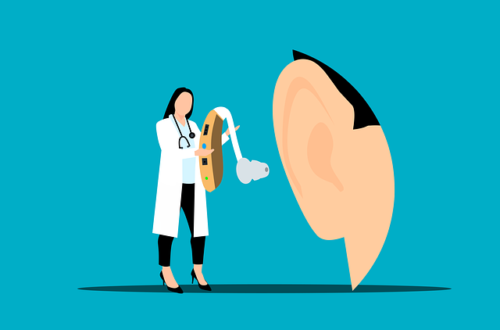Managing Cholesterol Levels: Heart Doctors’ Guidelines For Heart Health
Understanding Cholesterol And Its Impact On Heart Health
Cholesterol is vital in the blood, but imbalances can pose serious health risks. High levels of low-density lipoprotein (LDL) cholesterol can lead to atherosclerosis, where arteries narrow due to plaque buildup, increasing the risk of heart attack and stroke. Fortunately, cholesterol can be managed with diet, lifestyle changes, and sometimes medication. Cardiologists provide guidelines for maintaining healthy cholesterol levels, but individual factors like genetics and health status play a role. It’s essential to consult with a healthcare provider for a personalized plan to reduce heart disease risk.
The Role Of Diet In Managing Cholesterol Levels
Diet plays a crucial role in managing cholesterol levels, and heart doctors emphasize the importance of making informed dietary choices. The foods we consume can significantly impact our cholesterol levels, and by incorporating heart-healthy options, individuals can take proactive steps toward maintaining a healthy cardiovascular system.
One of the primary dietary recommendations from heart doctors is to increase the consumption of foods rich in fiber, particularly soluble fiber. Soluble fiber, found in foods like oats, beans, lentils, and certain fruits and vegetables, can help lower LDL cholesterol levels by binding to cholesterol in the digestive system and facilitating its elimination from the body. Incorporating these fiber-rich foods into your daily meals can be a simple yet effective way to manage cholesterol levels.
In addition to fiber, heart doctors also emphasize the importance of reducing the intake of saturated and trans fats, which are known to raise LDL cholesterol levels. These unhealthy fats are often found in processed foods, fried items, and particular meat and dairy products. By substituting these with healthier unsaturated fats, such as those found in olive oil, avocados, and nuts, individuals can help lower their cholesterol levels and reduce the risk of heart disease.
Heart-Healthy Foods To Incorporate Into Your Diet
To help manage cholesterol, heart doctors recommend several heart-healthy foods. Fatty fish like salmon, mackerel, and sardines are rich in omega-3 fatty acids, which help lower triglycerides and may boost high-density lipoprotein (HDL). This “good” cholesterol removes low-density lipoprotein (LDL). Nuts and seeds, including almonds, walnuts, and flaxseeds, provide healthy fats, fiber, and nutrients that support heart health and help reduce LDL cholesterol. Additionally, increasing fruits and vegetables—such as berries, citrus fruits, leafy greens, and cruciferous vegetables—add antioxidants and essential nutrients that benefit cholesterol levels and heart health.
The Importance Of Regular Exercise In Maintaining Healthy Cholesterol Levels
To a heart-healthy diet, heart health doctors emphasize the importance of regular exercise in managing cholesterol levels and promoting cardiovascular health. Physical activity can lower LDL cholesterol and increase HDL cholesterol, the “good” cholesterol that helps remove LDL from the bloodstream. Aerobic exercises like walking, jogging, cycling, and swimming effectively reduce LDL and triglyceride levels. At the same time, strength training helps build muscle and boost metabolism, further supporting healthy cholesterol levels.
Heart health doctors recommend 150 minutes of moderate-intensity or 75 minutes of vigorous-intensity exercise per week for optimal cholesterol management. However, individual exercise needs may vary, so consulting a heart health doctor or fitness expert can help create a personalized plan to meet specific health goals.
Medications For Managing Cholesterol Levels
While dietary and lifestyle changes are often the first step in managing cholesterol, heart doctors recognize that some individuals may need medication for optimal cholesterol control. This is especially true for those at higher risk for heart disease or those unable to reach their cholesterol goals through non-pharmacological methods.
Statins are the most commonly prescribed cholesterol-lowering medications. They reduce cholesterol production in the liver, lower LDL cholesterol, and reduce the risk of heart disease and related events like heart attacks and strokes. Other medications, such as bile acid sequestrants, cholesterol absorption inhibitors, and fibrates, may be prescribed, depending on an individual’s cholesterol profile and health needs.
The decision to use medication should be made in consultation with a healthcare provider, who will evaluate risk factors, overall health, and response to lifestyle changes. Regular monitoring and follow-up are essential to ensure the medication’s effectiveness and adjust the treatment plan as needed.
Lifestyle Changes To Support Heart Health And Manage Cholesterol
In addition to diet and exercise, heart doctors highlight other lifestyle changes that can significantly improve cholesterol levels and support heart health.
Maintaining a healthy weight is essential, as excess weight, especially around the waist, can increase cholesterol levels and other cardiovascular risks. A balanced diet and regular physical activity can help achieve and maintain a healthy weight, positively impacting cholesterol.
Managing stress is also crucial. Chronic stress can raise cholesterol levels and harm the cardiovascular system. Heart doctors recommend stress-reducing activities like meditation, yoga, deep breathing, or relaxing hobbies to support heart health and cholesterol management.
Quitting smoking is another vital lifestyle change. Smoking is a significant risk factor for heart disease and can worsen cholesterol levels. Quitting smoking improves cardiovascular health, enhances cholesterol profiles, and reduces the risk of heart-related complications.
Tips For Reducing Stress And Improving Heart Health
Stress management plays a vital role in heart health, and heart doctors recommend several effective strategies for reducing stress and supporting cardiovascular well-being.
Mindfulness and meditation are top recommendations, as they can reduce stress, lower blood pressure, and improve cholesterol levels. Daily mindfulness, such as deep breathing exercises or guided meditation, helps promote calmness and emotional balance, benefiting mental and physical health.
Regular physical activity is another crucial stress-reducing strategy. Exercise, such as yoga, tai chi, or even a brisk walk, not only aids in managing cholesterol but also helps alleviate stress and boost mood. These activities provide a healthy outlet for daily pressures and enhance overall well-being.
Heart doctors also emphasize the importance of social connection. Spending time with loved ones, engaging in social activities, and participating in community events can reduce feelings of isolation, contributing to stress and cardiovascular issues. Building strong support networks fosters emotional health and contributes to a healthier heart.
Regular Check-Ups And Screenings For Monitoring Cholesterol Levels
As heart doctors advise, regular monitoring and screening of cholesterol levels are crucial for maintaining heart health. Routine check-ups and blood tests provide valuable insights into an individual’s cholesterol profile, enabling early detection of imbalances and timely intervention.
Heart doctors generally recommend that adults over 20 have their cholesterol checked every 4 to 6 years, or more often for those with a history of heart disease or other risk factors. This simple blood test measures total cholesterol, LDL (bad) cholesterol, HDL (good) cholesterol, and triglycerides.
Monitoring cholesterol levels allows individuals to work with healthcare providers to detect any concerning changes and take proactive steps. These may include adjusting diet, increasing physical activity, or introducing cholesterol-lowering medications if necessary.
In addition to cholesterol screenings, heart doctors recommend comprehensive cardiovascular assessments. These may include blood pressure measurements, BMI calculations, and, in some cases, imaging tests like echocardiograms or stress tests. These assessments offer a complete picture of heart health, helping providers create personalized plans to manage cholesterol and reduce heart disease risk.
Conclusion: Taking Control Of Your Cholesterol For A Healthier Heart
Managing cholesterol levels is essential for heart health. Heart doctors provide clear guidelines for effectively managing cholesterol and reducing the risk of heart disease. Individuals can maintain a healthy cholesterol profile by understanding cholesterol’s role, making informed dietary choices, exercising regularly, and, when needed, using cholesterol-lowering medications.
Incorporating stress management, scheduling regular check-ups, and utilizing reliable resources further support heart health. By following expert advice, individuals can take control of their cholesterol levels, reduce heart disease risk, and pave the way for a healthier, more resilient heart.


